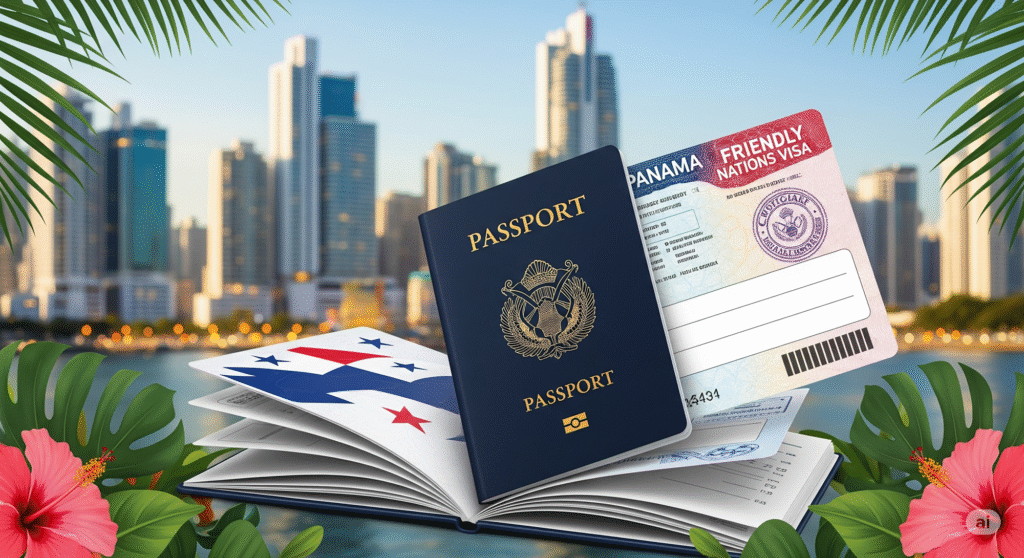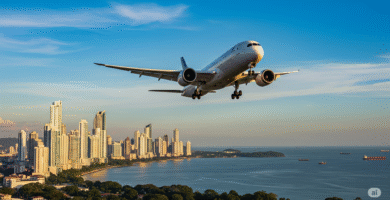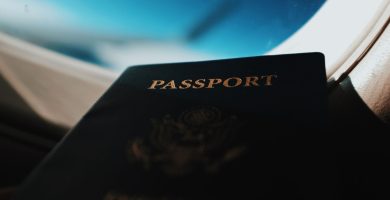
Introduction: Why the Panama Friendly Nations Visa Still Matters in 2025
For years, the Panama Friendly Nations Visa has been one of the most attractive residency options in Latin America, particularly for citizens of countries with strong economic and diplomatic ties to Panama. In 2025, despite recent changes that have made the process more demanding, it remains a powerful gateway for expatriates seeking stability, favorable tax conditions, and an enviable lifestyle.
Panama continues to offer a combination of economic opportunity, political stability, and geographic convenience—factors that make residency here appealing not just for retirees, but also for entrepreneurs, digital nomads, and investors.
What Is the Panama Friendly Nations Visa?
The Panama Friendly Nations Visa is a special residency program designed to attract professionals, investors, and entrepreneurs from countries with which Panama maintains “friendly” relations. Originally introduced in 2012, it quickly became one of the fastest and most affordable ways to obtain permanent residency.
The visa offers:
- Permanent residency status
- Pathway to citizenship after five years
- Permission to work in Panama (with the proper work permit)
- Access to Panama’s banking, healthcare, and investment systems
Eligibility: Who Can Apply and From Which Countries
The program is open to citizens from over 50 approved countries, including the United States, Canada, the United Kingdom, much of the European Union, Australia, New Zealand, Japan, South Korea, and several Latin American nations.
While the eligible list changes occasionally, the core idea remains the same: to attract people from countries with strong economic and diplomatic ties to Panama.
Recent Changes You Need to Know Before Applying
In its early years, the process was relatively simple—open a Panamanian bank account with USD 5,000, provide a few documents, and you could be on your way to permanent residency.
However, as one long-term resident and observer explained:
“The process is no longer as simple as just opening a bank account. Now you have to prove a stronger economic link—either by securing local employment or making a more substantial investment, such as purchasing property. It’s still achievable, but you need the right guidance.”
The new requirements are designed to ensure that applicants have genuine economic and social ties to the country, reducing the risk of people obtaining residency without meaningful participation in Panama’s economy.
Residency Requirements: From Bank Accounts to Real Investments
As of 2025, applicants must:
- Be a citizen of an eligible “friendly nation.”
- Demonstrate economic ties to Panama by:
- Employment: Secure a job offer from a Panamanian company.
- Investment: Purchase real estate valued at a minimum of USD 200,000 (can be financed).
- Maintain a Panamanian bank account with a minimum balance (varies by bank).
- Provide:
- Police background check
- A passport with at least one year’s validity
- Proof of income or financial means
- Additional documents, depending on the chosen route
The Role of Legal Assistance in a Successful Application
Attempting to navigate the Panama Friendly Nations Visa process alone can be overwhelming. Our source explained:
“I hired an immigration lawyer here, and honestly, it was the best decision. Doing it solo is almost impossible—there are too many documents to prepare, and each stage has its own rules. With a lawyer, everything was handled efficiently, and the immigration system itself was surprisingly modern and transparent.”
Most reputable law firms in Panama offer fixed-fee packages that include document preparation, translation, and representation before immigration authorities.
Key Benefits: Dollarized Economy, Connectivity, and Lifestyle
Beyond the legal status, the Friendly Nations Visa opens the door to living in one of the most strategically connected countries in the world.
Our source highlighted three major advantages:
- Dollarized Economy: Using the US dollar makes financial planning straightforward and eliminates exchange rate risk.
- Global Connectivity: With direct flights to major cities in the Americas and Europe, Panama is a hub for both business and leisure travel.
- Cost of Living & Lifestyle: Lower overall costs compared to many Western countries, tropical weather, fresh local food, and access to both beaches and mountains within hours.
For remote workers, Panama’s territorial tax system means foreign-sourced income is not taxed—a significant benefit for digital nomads and entrepreneurs.

Cost of Moving to Panama in 2026: The Complete Guide

Panama New Government Policies 2026: What Expats Need to Know

Panama Visitor Visas Requirements: Avoid Hassles with This Simple Guide
Potential Challenges and How to Overcome Them
While the program remains attractive, applicants should be aware of:
- Increased Documentation: Background checks, notarized translations, and proof of investment require preparation.
- Processing Times: Although generally faster than many countries, applications can still take months.
- Legal and Banking Requirements: Panama’s banking system has strict compliance rules, and some banks may be more challenging for foreigners without local ties.
The best way to mitigate these challenges is to work with an experienced local lawyer and start gathering the required documents from your home country well in advance.
Step-by-Step Overview of the Application Process
- Choose Your Route: Employment or property investment.
- Hire a Lawyer: Essential for efficient navigation.
- Open a Bank Account: Deposit the required funds.
- Gather Documentation: Police records, proof of income, and investment papers.
- Submit Application: The Lawyer files paperwork with Immigration.
- Temporary Residency Card: Issued while your permanent residency is processed.
- Permanent Residency Card: Typically granted within 3–6 months.
Final Thoughts: Is the Friendly Nations Visa Right for You?
The Panama Friendly Nations Visa remains one of the most straightforward paths to residency in the Americas, even with the added requirements. For those willing to make a meaningful economic commitment, it offers a stable base, financial advantages, and a high quality of life.
As our resident source put it:
“It’s more effort than before, but the reward of living here is fantastic. Between the economy, connectivity, and lifestyle, Panama is worth it.”
FAQ: Panama Friendly Nations Visa
1. How much do I need to invest to qualify?
As of 2025, a real estate investment of at least USD 200,000 is required if applying through the investment route.
2. Can I work in Panama with this visa?
Yes, but you will need to apply for a separate work permit after obtaining residency.
3. How long does the process take?
Typically 3–6 months, depending on documentation and processing speed.
4. Is the visa permanent?
Yes, it grants permanent residency, with the option to apply for citizenship after five years.
5. Do I need to live in Panama full-time to keep the visa?
No, but you should not be absent from the country for more than two consecutive years to maintain your residency status.
